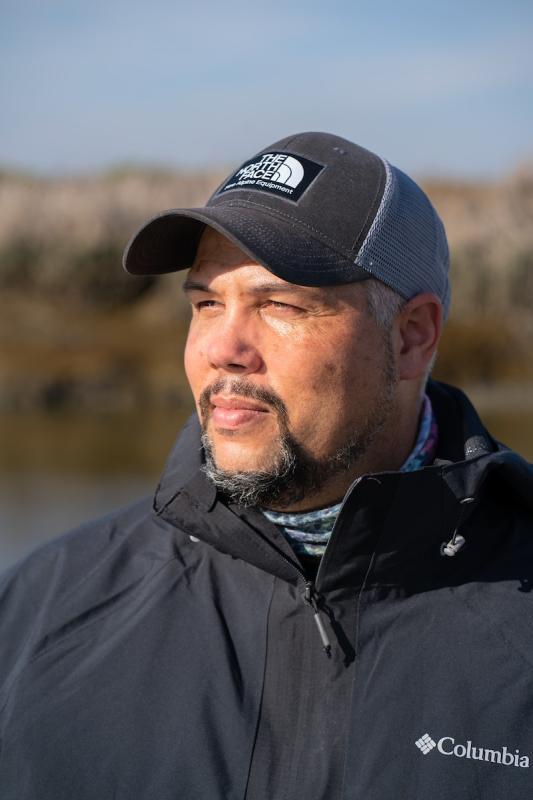Dr. Levi S. Lewis, Director of the UC Davis Otolith Geochemistry and Fish Ecology Laboratory, discusses studies of South Bay fish and fish habitats, highlighting key findings regarding their status and trends, and how these results have informed the development of bay-wide fish monitoring under the Wetlands Regional Monitoring Program.
- See video of presentation
- See and download Presentation Slides
- See links and additional comments shared via meeting chat
Speaker Bio: Dr. Levi S. Lewis serves as the director of the Otolith Geochemistry and Fish Ecology Laboratory (OGFL) within the Dept of Wildlife, Fish, and Conservation Biology at UC Davis. His research integrates traditional survey methods with otolith increment and geochemical analyses to assess the health of aquatic wetland communities and reconstruct the growth and migratory history of endangered fishes such as salmon, trout, sturgeon, and smelt. While his work is concentrated in the San Francisco Estuary, it extends across the United States and internationally, with active projects in Mississippi, Idaho, Wisconsin, China, and Turkey. The overarching mission of the OGFL is to generate actionable knowledge that informs critical policy decisions related to water management, species conservation, and wetland restoration.
Further Info on Topic:
The restoration of wetland habitats in the San Francisco Estuary is a vital step toward fostering a healthier and more vibrant estuarine ecosystem. While changes in vegetation, geomorphology, and terrestrial fauna can often be monitored remotely or from the shoreline, evaluating the health of aquatic wetland ecosystems requires specialized approaches. These include the deployment of multi-parameter sondes to measure physical environmental variables (e.g., water temperature, salinity, turbidity, and pH) and the use of diverse sampling gear to target various aquatic biota. These biota range from crustaceans (e.g., crabs and shrimp) to small forage fish (e.g., herring and smelt) and larger fish species (e.g., striped bass, sharks, and sturgeon). Over recent years, studies supported by the South Bay Salt Pond Restoration Program and other stakeholders have explored numerous aspects of aquatic wetland ecosystems within the Restoration Project network. This review highlights key findings from these studies in South San Francisco Bay, emphasizing their role in characterizing aquatic communities and environmental conditions, establishing fish and habitat sampling guidelines, and designing a regional monitoring framework for aquatic wetland ecosystems as part of the Wetlands Regional Monitoring Program.
Scientific Question
This research will help the Restoration Project answer a central scientific question in its Adaptive Management Plan under the topic of Sediment Dynamics:
Will increased tidal habitat increase native fish abundance and will restored habitat support healthy populations?
Lunch and Learn Science Speaker Series
This presentation is one in a series put forth by the South Bay Salt Pond Restoration Project. The series addresses science and adaptive management done in support of or in collaboration with our Restoration Project as well as relevant outside work. Speakers discuss research, modeling, and monitoring efforts and how Restoration Project managers are using science to inform decisions about restoration, flood risk management, and public access.



